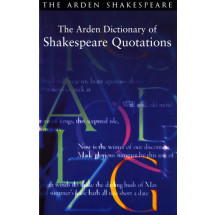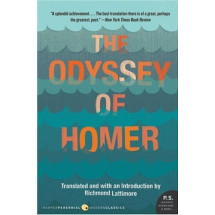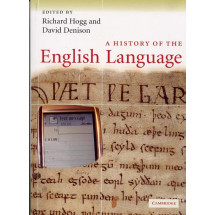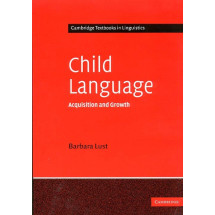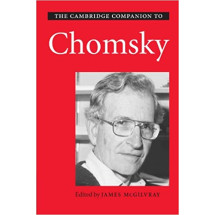Bringing together thirty-two landmark essays, Central Works in Technical Communication provides a broad and representative overview of the field. It introduces students, new teachers, and new practitioners to the community of technical communication as an intellectual and communal endeavor that encompasses such complex theoretical topics as research methods, social issues, and ethics. Editors Johndan Johnson-Eilola and Stuart A. Selber engaged in a comprehensive selection process--including the consultation of a review board of leading teachers and scholars--and have included some of the most influential articles and book chapters published in technical communication over the last twenty-five years. Each essay is accompanied by a reflective piece written by its author specifically for this volume. These commentaries provide context for the essays and allow the authors to add to or challenge their original ideas and resituate them in a contemporary environment. The book also features section introductions written by the editors that offer historical and conceptual approaches to understanding the contributions each work makes to the field of technical communication. Central Works in Technical Communication is organized around eight major conceptual categories: histories, rhetorical perspectives, philosophies and theories, ethical and power issues, research methods, workplace studies, online environments, and pedagogical directions. An alternative table of contents groups the essays into additional categories including collaboration, gender, genre, usability, and visual theory and practice. Ideal for advanced undergraduate and graduate courses in technical communication, this collection is also a compact and convenient resource for practicing professionals and academics new to the field.
PART 1: HISTORIES
1. Robert Connors, "The Rise of Technical Writing Instruction in America"
2. Russell Rutter, "History, Rhetoric, and Humanism: Toward a More Comprehensive Definition of Technical Communication"
3. Katherine T. Durack, "Gender, Technology, and the History of Technical Communication"
PART 2: RHETORICAL PERSPECTIVES
4. Carolyn R. Miller, "A Humanistic Rationale for Technical Writing"
5. Linda Driskill, "Understanding the Writing Context in Organizations"
6. Carolyn D. Rude, "The Report for Decision Making: Genre and Inquiry"
7. Robert R. Johnson, "Audience Involved: Toward a Participatory Model of Writing"
PART 3: PHILOSOPHIES AND THEORIES
8. David N. Dobrin, "What's Technical about Technical Writing?"
9. Charlotte Thralls and Nancy Roundy Blyler, "The Social Perspective and Professional Communication: Diversity and Directions in Research"
10. Mary M. Lay, "Feminist Theory and the Redefinition of Technical Communication"
11. Jennifer Daryl Slack, David James Miller, and Jeffrey Doak, "The Technical Communicator as Author: Meaning, Power, Authority"
12. Johndan Johnson-Eilola, "Relocating the Value of Work: Technical Communication in a Post-Industrial Age"
PART 4: ETHICAL AND POWER ISSUES
13. Steven B. Katz, "The Ethic of Expediency: Classical Rhetoric, Technology, and the Holocaust"
14. Dale L. Sullivan, "Political-Ethical Implications of Defining Technical Communication as a Practice"
15. Carl G. Herndl, "Teaching Discourse and Reproducing Culture: A Critique of Research and Pedagogy in Professional and Non-Academic Writing"
16. Ben F. Barton and Marthalee S. Barton, "Ideology and the Map: Toward a Postmodern Visual Design Practice"
PART 5: RESEARCH METHODS
17. Teresa M. Harrison, "Frameworks for the Study of Writing in Organizational Contexts"
18. Nancy Roundy Blyler, "Taking a Political Turn: The Critical Perspective and Research in Professional Communication"
19. Davida Charney, "Empiricism Is Not a Four-Letter Word"
20. Patricia Sullivan and James E. Porter, "On Theory, Practice, and Method: Toward a Heuristic Research Methodology for Professional Writing"
PART 6: WORKPLACE STUDIES
21. Jack Selzer, "The Composing Processes of an Engineer"
22. Stephen Doheny-Farina, "Writing in an Emerging Organization: An Ethnographic Study"
23. Dorothy A. Winsor, "Engineering Writing/Writing Engineering"
24. Nancy Allen, Dianne Atkinson, Meg Morgan, Teresa Moore, and Craig Snow, "What Experienced Collaborators Say about Collaborative Writing"
25. James Paradis, "Text and Action: The Operator's Manual in Context and in Court"
26. Barbara Mirel, "Writing and Database Technology: Extending the Definition of Writing in the Workplace"
PART 7: ONLINE ENVIRONMENTS
27. Tharon W. Howard, "Who 'Owns' Electronic Texts?"
28. Stephen A. Bernhardt, "The Shape of Text to Come: The Texture of Print on Screens"
29. Cynthia L. Selfe and Richard J. Selfe, Jr., "The Politics of the Interface: Power and Its Exercise in Electronic Contact Zones"
PART 8: PEDAGOGICAL DIRECTIONS
30. Stuart A. Selber, "Beyond Skill Building: Challenges Facing Technical Communication Teachers in the Computer Age"
31. Deborah S. Bosley, "Cross-Cultural Collaboration: Whose Culture Is It, Anyway?"
32. Lee E. Brasseur, "Contesting the Objectivist Paradigm: Gender Issues in the Technical and Professional Communication Curriculum"Bibliographic Resources in Technical Communication
Johndan Johnson-Eilola is at Clarkson University. Stuart Selber is at Pennsylvania State University.



